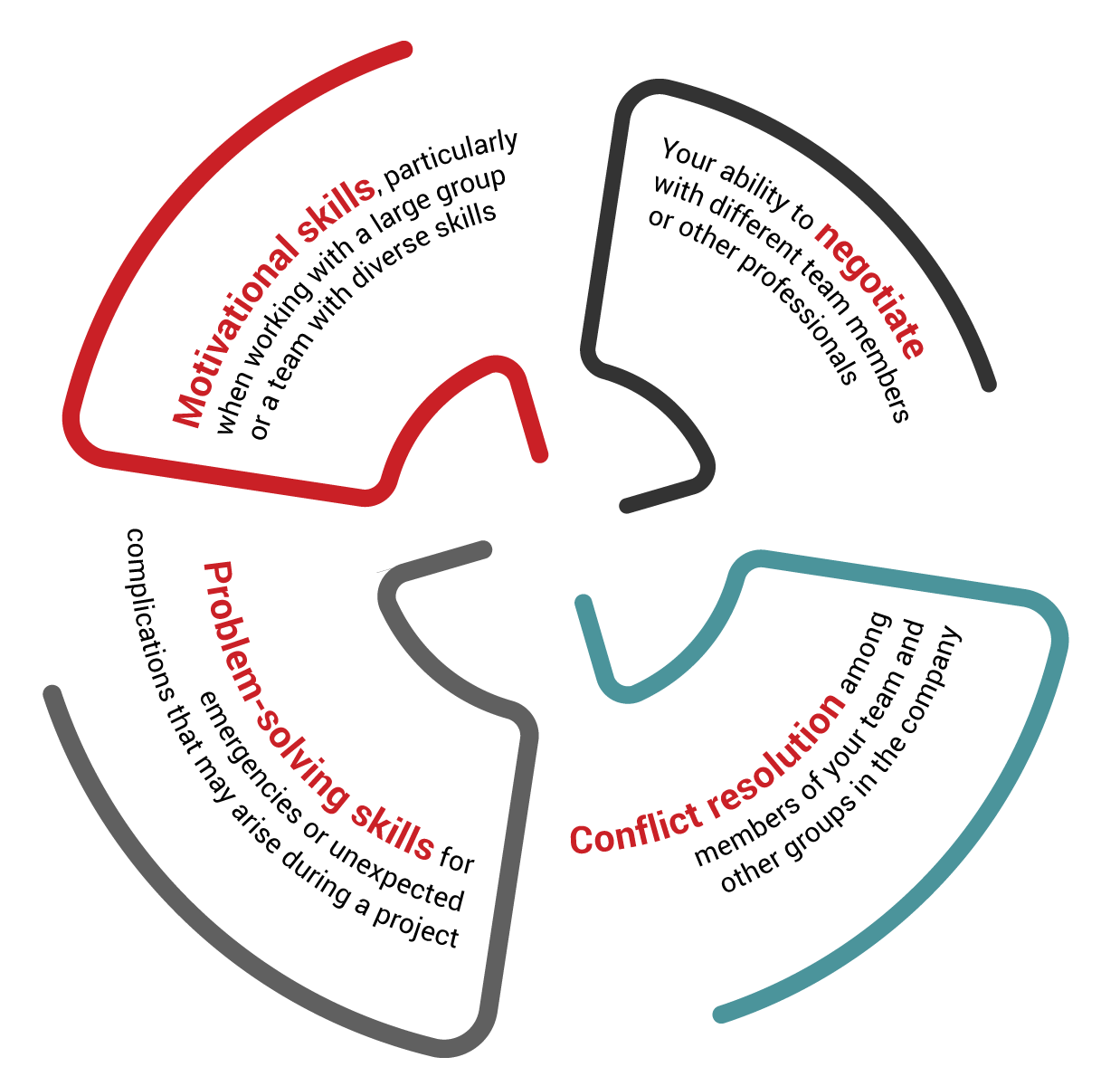Project managers face a variety of situations and challenges in the workplace. They must learn to balance different skills for the situations they may face while also ensuring that they maintain effective leadership to improve the results of a project. Determining the appropriate way to balance hard and soft skills for an effective project starts with identifying the skills that benefit your team.
What are Hard Skills?
Hard skills in project management refer to the technical skills professionals need to lead a team. Technical skills may vary based on the project and the type of business. For example, a project manager may need programming skills in an IT firm, but may not need the same level of technological skills in other businesses and industries.
Due to the variable nature of project management in different industries and companies, specific skills may vary; however, every project manager must know basic organizational skills, an appropriate level of technology skills for the business, and the methodology used by the organization or company to complete specific tasks to a set standard. Hard skills are the technical skills associated with your goals as a project management professional. You must understand the goals of the business and the methods used by the company to accomplish specific tasks to act as a leader; however, the hard skills are also utilized by other members of your team. They are not the defining factor of a leader for the project.
What are Soft Skills?
Soft skills relate to interpersonal interactions, negotiations, and leadership skills. Essentially, soft skills refer to your ability to understand and manage people by identifying their motivations and determining the appropriate way to use specific skills with limited conflicts throughout the project. Although soft skills may vary based on the individuals or the team, certain abilities play a role in the final outcome of your project.
The factors that set a leader apart through soft skills include:
As a project leader, you must understand the motivations of your team and use the information to develop an effective work environment. You want to resolve conflicts quickly and negotiate with appropriate individuals to accomplish a specific task. Soft skills basically refer to your people skills or your ability to work with others for a common goal.
Balancing Different Skills as a Leader
An effective leader is a professional who understands the relationship between hard and soft skills and then works to balance the skills for an effective team. Due to the complexity of professionals in a work environment, balancing hard and soft skills is often a challenge for a manager or leader. The key to balancing your skills is recognizing when to take action and when to delay action for a better result. Therefore, you want to understand the skills that complete specific goals, or the hard skills, without ignoring the leadership qualities associated with the soft skills.
Organize a plan of action for the project. Set goals for different individuals or groups. Create a clear direction for your team using technical skills and their specific abilities. The goals provide the organization your team needs to keep up with your plans.
After establishing the goals and organizing the members of your team, keep an open line of communication between leaders, team members and the project manager. Communication is the key to balancing the hard and soft skills because it keeps you aware of the potential challenges or problems that may arise during the project.
Challenges Associated with Balancing Skills in America
Balancing hard and soft skills in North America is a challenge due to the lack of appropriate training and the limited communication within different groups of a company. Effective leaders understand the importance of communication at every level of the organization, even among the most technical professionals in the back offices of the business.
Hence, when you do not train team leaders, stockholders or the highest levels of leadership in the company effectively, it limits progress and causes failures. Lack of communication also causes conflicts or causes members of the team to forget the actual goals of the organization or business. You need to overcome the challenges associated with a proper balance of skills to make the most of your abilities and to encourage your team to handle any complex problems that may arise while working on a project.
Overcoming and Eliminating Challenges
Eliminating challenges to your balance of hard and soft skills in the workplace is an easier process than you may estimate. Essentially, you want to encourage training and the development of a balanced set of skills.
Encourage project managers to obtain ISO project management certification. Importantly, the certification requires an education in specific skills and abilities. Furthermore, it provides confidence in the individual’s ability to handle any project.
After an individual obtains appropriate certification, encourage continuing training and education in project management and the balance of different skills as an effective leader. Continued training keeps a professional up-to-date while also allowing the individual to practice and improve their skills. It sets a strong foundation to prevent complications and challenges in the workplace.
Balancing your skills as a project manager or a project management professional starts with identifying the different skills and recognizing the challenges you may face. Modern professionals face a variety of challenges that range from organizing a team with diverse skills to leading professionals toward a common goal. Understanding different ways to work with your team allows you to avoid conflicts and improve the efficiency of your team.
PECB
Showing competence through professional certification may certainly be referred to as the best way to take a step further in tackling various challenges in project management. Consequently, certifying against ISO 21500 through PECB is expected to primarily ease the tackling process of various challenges related to project management implementation frameworks, while increasing the effectivity of balancing hard and soft skills.










